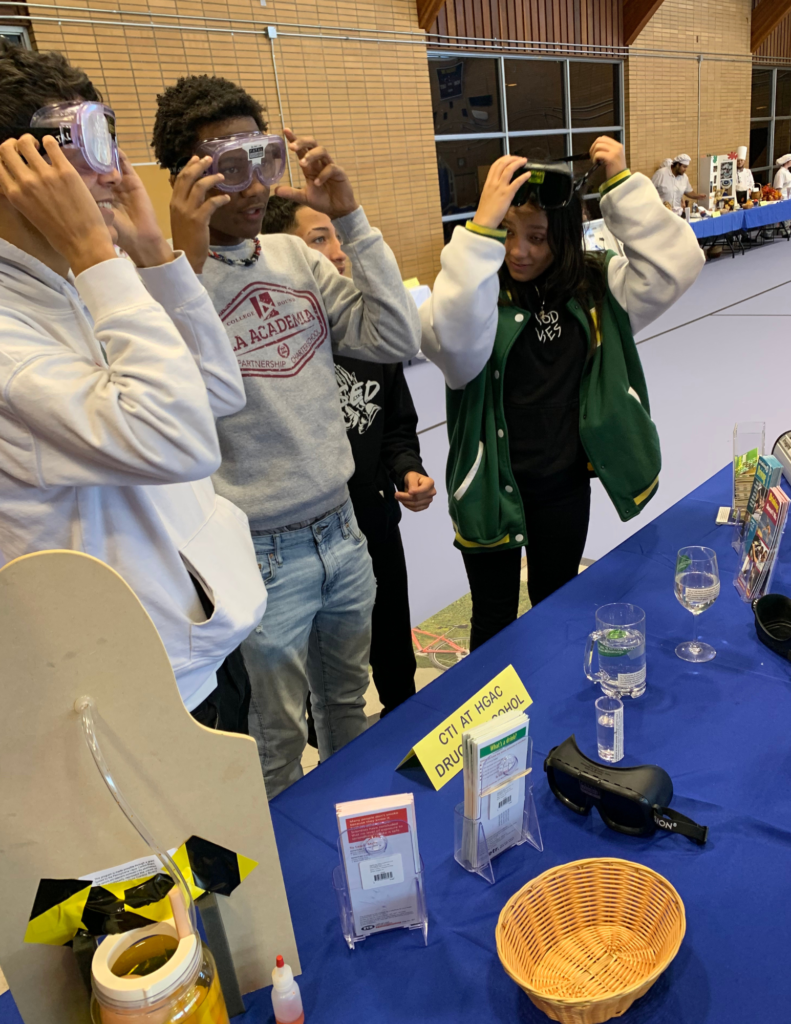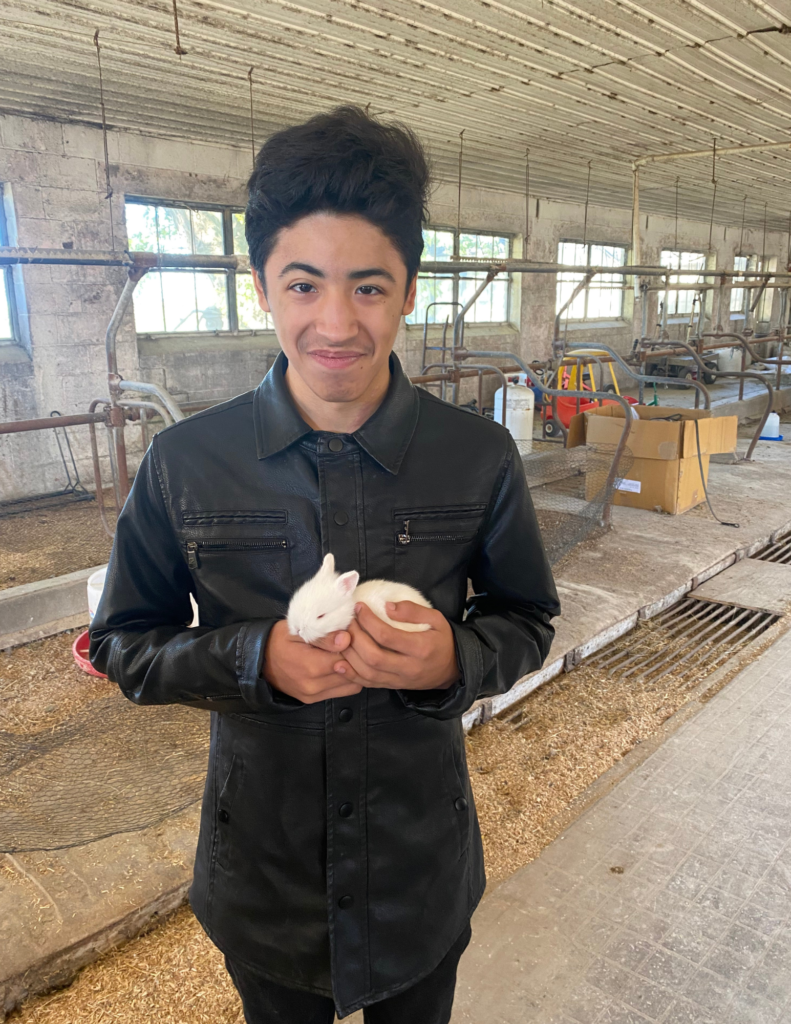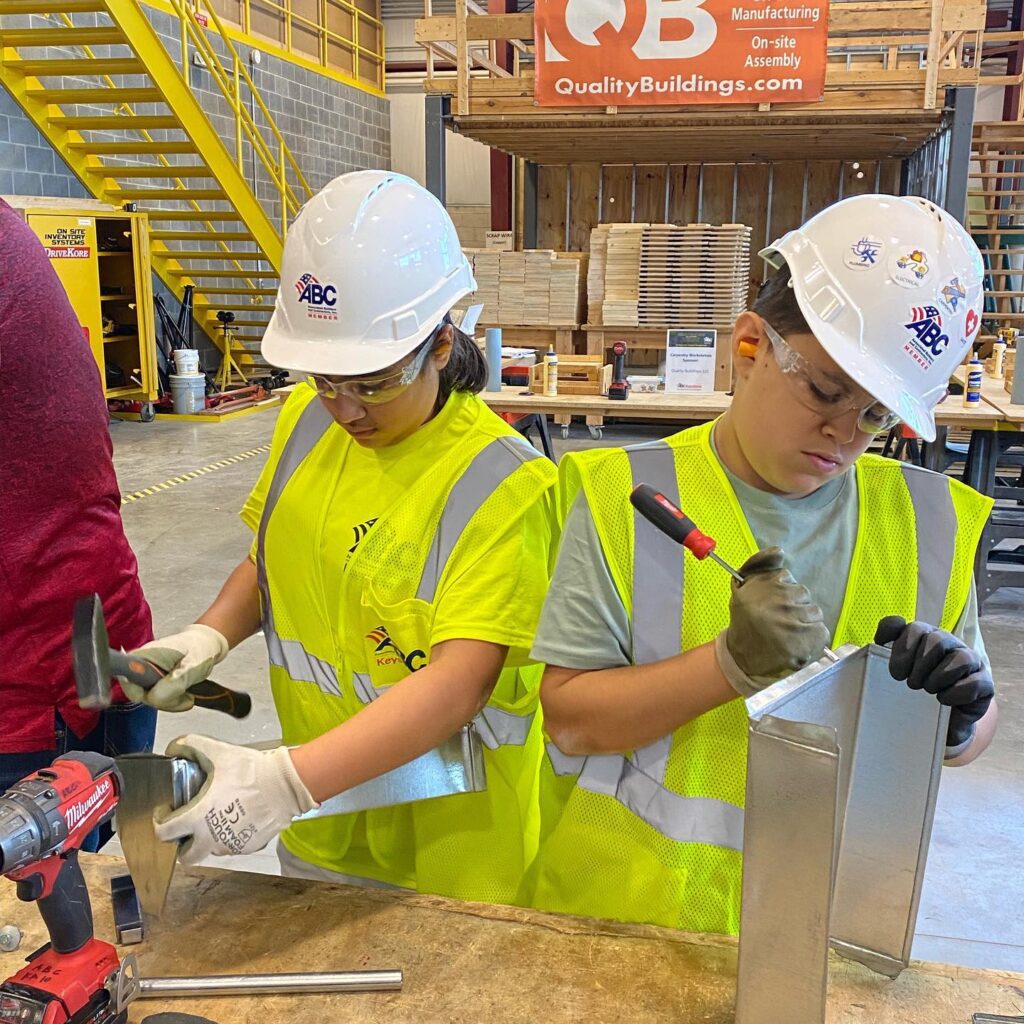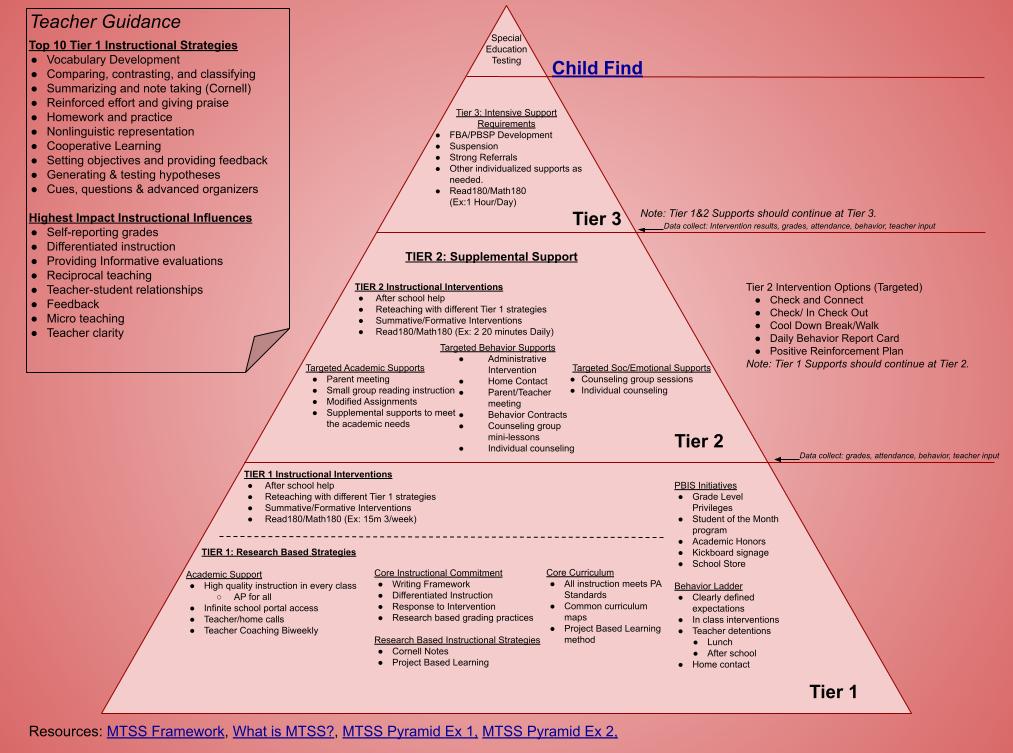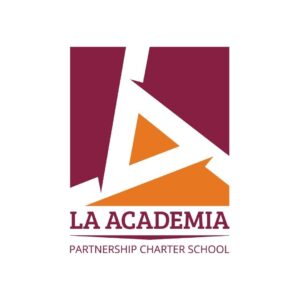La Academia Partnership Charter School is dedicated to delivering a comprehensive student support system that is customized to address the unique needs of our diverse student population. Our institution is firmly committed to providing specialized educational services and support structures focused on enhancing the needs of Specific Learning Disability scholars.
We recognize that students of varying ages may require specialized assistance, and our commitment extends to children from the ages of 6th grade to 12th grade. Eligible scholars within the La Academia Partnership Charter School community can access these special education services, which are available until they reach the age of 22.
Scholars are referred for special education services subsequent to a comprehensive evaluation process. If you believe that your child could benefit from any of La Academia Partnership Charter School’s support services, we encourage you to reach out to your building Director of Student Services to initiate a formal evaluation request. Your child’s well-being and educational success are of paramount importance to us, and we are dedicated to providing the necessary support to help them thrive.
Special Education Services at La Academia Partnership Charter School
Ensuring Scholar Success through Individualized Support
At La Academia Partnership Charter School (LAPCS), we are committed to providing a supportive and inclusive learning environment that caters to the unique needs of every scholar. We recognize that some scholars may require specialized assistance through Special Education services, including Individualized Education Plans (IEPs) and 504 Plans. We are dedicated to ensuring that every scholar reaches their fullest potential, and we are here to guide you through the process of accessing these vital resources.
Understanding IEPs and 504 Plans
Individualized Education Plan (IEP): An IEP is a legally binding document developed for scholars with specific learning disabilities or other exceptionalities that impact their academic performance. It outlines individualized goals, specialized services, and accommodations tailored to meet the scholar’s unique needs. Our team works closely with parents and guardians to create, review, and update IEPs as necessary, ensuring that the scholar receives the appropriate support throughout their academic journey.
504 Plan: A 504 Plan, named after Section 504 of the Rehabilitation Act of 1973, is designed to provide accommodations and modifications to scholars with disabilities that may not require specialized instruction. These plans ensure equal access to educational programs and services, allowing scholars to thrive academically while addressing their specific needs.
LAPCS’ Multi-Tiered System of Support (MTSS)
To provide comprehensive support for scholars at LAPCS, we have implemented a Multi-Tiered System of Support (MTSS) program. This program offers various levels of assistance to scholars based on their individual needs, as illustrated in our support pyramid:
Tier 1: Universal support and classroom accommodations available to all scholars.
Tier 2: Targeted interventions for scholars who may need additional support in specific areas.
Tier 3: Intensive, individualized interventions for scholars requiring specialized assistance.
The Evaluation Process
Determining whether your scholar may benefit from special education services is a collaborative process that involves a thorough evaluation. Our evaluation process follows a structured approach, including assessments, observations, and consultations with educators and specialists.
To initiate this process, we provide a user-friendly online form that parents and guardians can conveniently fill out. You can access this form here. Alternatively, you are welcome to schedule an in-person appointment with our Director of Student Services to complete the form together and discuss your scholar’s needs.
For further assistance or inquiries related to Special Education services at LAPCS, please do not hesitate to contact us at [Director’s email address: kmelendez@lapcs.org]. We are here to partner with you in ensuring that your scholar receives the support they require to excel academically and thrive in our nurturing educational community. Your child’s success is our priority, and we are committed to walking this journey with you every step of the way.
English Language Learners (ELL) Program
At La Academia Partnership Charter School, our commitment to ensuring the academic success of English Language Learners (ELL) is paramount. To this end, we have implemented a comprehensive ELL program that adheres to rigorous assessment and instructional standards. The following outlines our approach to supporting ELL scholars:
Assessment: Before the commencement of the academic year, all scholars identified as English Language Learners undergo an assessment using the WIDA Access testing framework. This evaluation is conducted to ascertain their English language proficiency levels accurately. Every newly identified ELD scholar will receive a screener to determine their placement.
Our next window for testing will be carried out through January 2024 and into February.
Instructional Differentiation:
Newcomer and Level 1 & 2 ELL Scholars: Scholars in their first and second years of English language learning receive targeted instruction designed to accelerate language acquisition. They are provided with two dedicated periods of intensive English language instruction. Additionally, they benefit from comprehensive support in their core content areas, including Science, Social Studies, and Mathematics, through the guidance of qualified Bilingual tutors.
Level 3 & 4 ELL Scholars: Scholars who have reached their third and fourth years of English language acquisition transition to a more advanced stage in their educational journey. At this stage, they participate in grade-level instruction alongside their peers. In addition to grade-level instruction, they engage in a specialized support class focused on writing and reading. This structured environment enables them to access grade-level curricula while fostering the development of their writing and reading skills.
Our commitment to addressing the unique needs of each ELL scholar reflects our dedication to their academic growth and success. Through this tailored approach, we ensure that ELL scholars at La Academia Partnership Charter School receive the highest quality education and support they need to thrive in a diverse and inclusive learning community.
As of the 23/24 School Year Gillian Wismer and Claire Stevens are our ELD Teachers.
Pennsylvania Alternate System of Assessment (PASA)
The Every Student Succeeds Act (ESSA) requires Pennsylvania to ensure that the total number of students assessed in each subject using the PASA does not exceed 1 percent of the total number of all students in the state assessed on the statewide assessments. Each local education agency (LEA) must complete and submit the PASA 1.0 Percent Participation Threshold Justification to BSE if it anticipates that more than 1 percent of its students enrolled in grades 3-8 and 11 will be assessed using the PASA. A list of LEAs who anticipate exceeding the threshold will be made publicly available on the PDE website, in accordance with 34 CFR 200.6(c)(3) regulations. LEAs must also make the document publicly available upon request, removing any personally identifiable information.
La Academia Partnership Charter School does not anticipate exceeding the 1 percent threshold for PASA participation for the 23-24 testing cycle. Questions on LAPCS’s participation rates should be directed to Ms. Landis, Principal, at elandis@lapcs.org.
Procedural Safeguards Notice
The purpose of the procedural safeguards notice is to inform parents completely about the procedural safeguards available under the Individuals with Disabilities Education Act (IDEA). These represent their rights as parents and the protections they have—and their child as well—under the law and its implementing regulations. Find the Notice here.
Special Education Services and Programs
State and federal special education regulations require each school to provide notice to the community by publishing an annual public notice to parents, in newspapers or by other media, regarding the school’s identification and screening activities, the location and time of the activities, and also any evaluation activity which takes place in La Academia Partnership Charter School.
The school is required to provide a free appropriate public education (FAPE) to children with disabilities who are determined, through the evaluation process, to need special education and related services under IDEA and 22 Pa. School Code §14. A school-age child with a disability, who is determined to be in need of special education and related services, is identified as a child with a disability eligible for special education in need of specially designed instruction. The following are disability categories under IDEA:
- Autism
- Deafness
- Deaf/Blindness
- Emotional Disturbance
- Traumatic Brain Injury
- Hearing Impairment
- Specific Learning Disability
- Intellectual Disability
- Multiple Disabilities
- Other Health Impairment
- Speech and Language Impairment
- Orthopedic Impairment
- Visual Impairment including Blindness
Want to learn more? Explore our presentation below:
Gifted Education
Parents who suspect that their child is in need of specially designed instruction beyond that required in 22 Pa. School Code §4 (relating to academic standards and assessments) may request in writing that their child be evaluated under the criteria of 22 Pa.School Code §16.22.
Early Intervention
Please be advised that La Academia Partnership Charter School exclusively provides education to students in grades 6 through 12. This information is for legal matters only.
In Pennsylvania, any child between three years of age and the school’s age of beginners who has a developmental delay or one or more of the physical or mental conditions listed above is identified as an “eligible young child.” Children who are less than the age of beginners and at least three years of age are considered to have a developmental delay when one of the following exists: (i) the child’s score, on a developmental assessment device, on an assessment instrument which yields a score in months, indicates that the child is delayed by 25% of the child’s chronological age in one or more developmental areas, as documented by test performance of 1.5 standard deviations below the mean on standardized tests. Developmental areas include cognitive, communicative, physical, social/emotional, and self-help.
Eligible young children are afforded the same rights under IDEA and 22 Pa. School Code §14 as school-age children, in order to determine if they are eligible to receive special education services through the screening and evaluation process. Once a child is determined to be eligible to receive special education, an individualized education program will be developed for the child.
The Pennsylvania Department of Education is responsible for providing programs and services to eligible young children under Act 212 of 1990, the Early Intervention System Act. Screening for preschool children is available through the Lancaster-Lebanon Intermediate Unit. For additional information please contact the Lancaster-Lebanon Intermediate Unit 13 at 717-606-1601.
Screening
Screening activities are conducted on an ongoing basis throughout the school year. Screening is conducted in the student’s home school unless other arrangements are necessary. Parents can request screening in writing for their children by contacting the school that their child attends. When screening indicates that a student may be a child with a disability eligible for special education, the school will seek parental consent to conduct an evaluation.
Screening activities cannot block the rights of a parent to request, at any time, including prior to or during instructional support activities, an evaluation for the purpose of determining if the student is a child with a disability and eligible for special education services.
Evaluation
“Evaluation” is the procedure used to determine whether a child has a disability and if the child’s disability is of the nature and extent that the child would be eligible for special education and related services. Evaluation procedures used are determined on an individual basis by a Multidisciplinary Evaluation team, which includes the parents. Parents are asked to provide permission to conduct the evaluation via a Prior Written Notice for Initial Evaluation and Request for Consent form. The evaluation team takes into consideration cultural issues as they determine the assessment tools that will be administered to the student. A single test or procedure cannot be the sole factor in determining that a child is eligible for special education services. The initial evaluation shall be completed and a copy of the evaluation report shall be presented to the parents no later than 60 days after the agency receives written parental consent. Evaluation for the purpose of determining if a child is a child with a disability eligible for special education does not include the procedures or basic tests that are administered to all children.
Parents who think their child is a child with a disability may request, at any time, that the school conduct an evaluation to determine if the child is eligible to receive special education and related services. This request must be made in writing to the Special Education Director. If a parent makes an oral request for an evaluation, the school shall provide the parent with a Permission to Evaluate – Evaluation Request Form to complete.
Parent Initiated Evaluations
If the parent obtains an independent educational evaluation at private expense, the results of the evaluation must be considered by the school, if it meets the school’s criteria, in any decision made with respect to the provision of FAPE to the child. In addition, the independent educational evaluation may be presented as evidence at a Due Process hearing.
Educational Placement
If the evaluation team has determined that the student is eligible for special education, an IEP team develops an educational program, based on the evaluation, which identifies the type of services, the level of intervention, and the location of intervention. The IEP team must include:
- a school representative (LEA)
- the general education teacher
- the special education teacher
- the child’s parents and the student when 14 years of age
An IEP describes a student’s current educational levels, goals, and objectives, and the individualized programs and services necessary to provide the student with FAPE. These services may include:
- Learning Support
- Life Skills Support
- Emotional Support
- Sensory Support
- Deaf or Hard of Hearing Support
- Blind or Visually Impaired Support
- Speech and Language Support
- Physical Support
- Autistic Support
- Multiple Disabilities Support
A student’s special education placement must be made in the least restrictive environment in which the student’s educational needs can be addressed. All students with disabilities must be educated to the maximum extent appropriate with their non-disabled peers. A student’s IEP is reviewed on at least an annual basis.
Services for Protected Handicapped Students
In compliance with state and federal law, and 22 Pa. School Code Chapter 15, the school will provide to each protected handicapped student, without discrimination or cost to the student or family, those related aids, services, or accommodations that are needed to provide an equal opportunity to participate in and obtain the benefits of the school programs and participate in extracurricular activities to the maximum extent appropriate to the student’s abilities.
In order to qualify as a protected handicapped student, the child must be of school age with a physical or mental disability that substantially limits one or more major life activities that prohibit participation in, or access to, an aspect of school programs. These services and protections for “protected handicapped students” are different from those applicable to all students eligible or thought to be eligible for special education services and must be designed to meet the individual educational needs of the handicapped individual as adequately as the needs of non-handicapped persons are met.
The school or parent may at any time initiate an evaluation of a student. Parents who wish to have a child evaluated should contact their building principal or guidance counselor for further information on the evaluation procedures and provision of services to protected handicapped students.
Confidentiality
The school protects the confidentiality of personally identifiable information regarding its students in accordance with the Family Educational Rights and Privacy Act (FERPA) of 1974 and other applicable federal and state laws.
Parents have the right to inspect and review their child’s educational records. The school will comply with a request to inspect and review educational records without unnecessary delay and before any meeting regarding an IEP or any due process hearing, but no later than 30 days after the written request has been made. Parents have the right to a response from the school school to reasonable requests for explanations and interpretations of the records. Parents have the right to request copies of the records.
While the school cannot charge a fee to search for or to retrieve information, it may charge a copying fee as long as it does not effectively prevent the parent from exercising their right to inspect and review the records. Parents have the right to appoint a representative to inspect and review their child’s records. If any educational record contains information on more than one child, parents have the right only to inspect and review the information relating to their child.
Post Secondary Transition Resources:
Link to Community Resources: IU 13 Transitions Supports and Resources
Useful Websites for Special Education:
Pennsylvania Department of Education – www.education.state.pa.us
Council for Exceptional Children – www.cec.sped.org
Pennsylvania Training and Technical Assistance – www.pattan.net
Upcoming events to PATTAN Trainings for Parents: https://www.pattan.net/Parent–
Resources for Families
https://www.pattan.net/Parent–
PA and National Organizations for support
https://www.pattan.net/Parent–
IU13 – Lancaster-Lebanon Intermediate Unit 13 – www.iu13.org
Support and Related Services
https://www.iu13.org/students-
Programs and Classes
https://www.iu13.org/students-
Events and Workshops
https://www.iu13.org/students-
Useful Websites for Special Education:
Pennsylvania Department of Education – www.education.state.pa.us
Council for Exceptional Children – www.cec.sped.org
Policies
Child Find
Confidentiality
Parent Training
Positive Behavior Support Policy
Public School Enrollment
Procedures
Assistive Technology
Disproportionate Representation as a Result of Inappropriate Identification
Dispute Resolution
Independent Educational Evaluation







